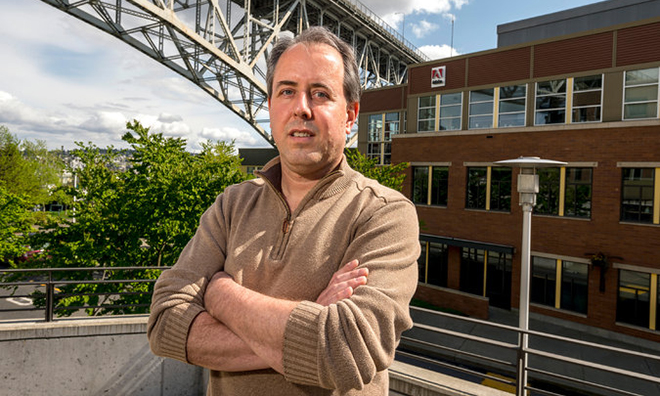Nearly three weeks after Apple, Google, Intel and Adobe agreed to settle out of court a class action lawsuit over alleged anti-poaching agreements, the case's class representative is requesting the $324 million settlement be rejected as "unfair and unjust."
In a letter sent to U.S. District Court for the Northern District of California Judge Lucy Koh on Sunday, Michael Devine protested the pending settlement agreed to by plaintiffs' lawyers, saying the proposed $324 million settlement is "grossly inadequate." Devine is one of four plaintiffs named in the suit and serves as class representative in the case.
The letter has not yet been made available through official court channels, but Devine posted a copy online, which was subsequently picked up by The New York Times.
In the request, Devine states his belief that the four tech giants are getting off lightly considering the suit asked for $3 billion in damages, a figure that could have been trebled to $9 billion if defendants were found in the wrong. In addition, the $324 million is seen as a slap on the wrist considering each company's massive cash reserves.
"As an analogy, if a shoplifter is caught on video stealing a $400 iPad from the Apple Store, would a fair and just resolution be for the shoplifter to pay Apple $40, keep the iPad, and walk away with no record or admission of wrongdoing," Devine writes. "Of course not, nor is such a resolution appropriate in our case."
At least part of the argument claims class counsel, Lieff Cabraser Heimann & Bernstein and Joseph Saveri Law Firm, has more to gain from a settlement than the class it represents. In accepting the proposed figure, the two firms could rake in up to $75 million in fees while leaving the 64,000-member class with only a few thousand dollars each.
Further, Devine points out that class counsel did not notify plaintiffs of meetings that ultimately resulted in the settlement.
"I also wish to inform the Court that I was not informed that the most recent round of mediation that lead to the tentative settlement was even taking place until the day after Plaintiffs' and Defendants' counsel had already reached an agreement," the letter reads. "I should have been notified of this mediation so that I could substantively participate and fulfill my duties as Class Representative."
According to legal experts it would be difficult for the class to fire its attorneys as they were appointed class counsel by Judge Koh at the start of proceedings. In lieu of expelling its current lawyers, class members would need to object to the proposed settlement with a set of newly hired attorneys, arguing that the formerly agreed upon number is insufficient.
It is unclear whether Judge Koh will be receptive to a rejection, especially with $324 million on the table. On the other hand, the sum represents only three percent of a potential trebling of damages, which may not be seen as sufficient in the eyes of the court.
Not taking the suit to trial is perhaps in the best interest of Apple, Google, Intel and Adobe, seeing as the companies' supposedly dirty laundry would be aired. A number of revelations have already come out as part of the case. For example, Apple cofounder Steve Jobs was quite vocal when it came to hiring practices and allegedly made "threats" to fellow tech CEOs regarding non-recruitment policies of then-current Apple employees.
 Mikey Campbell
Mikey Campbell







-m.jpg)






 Andrew Orr
Andrew Orr
 Amber Neely
Amber Neely
 Marko Zivkovic
Marko Zivkovic
 William Gallagher and Mike Wuerthele
William Gallagher and Mike Wuerthele



 Mike Wuerthele
Mike Wuerthele









69 Comments
Oh, shut the **** up you fucking whiner. This guy lives in a fantasy world where he imagines he would have gotten "poached" and became a millionaire if it wasnt for this agreement. Accept the settlement and move on with your life, do something useful, instead of being a gold-digging parasite.
Boo hoo. Whatever.
I think they should have gotten nothing...how about that!
Shut it bud. You have or have had a good paying job. You have access to clean drinking water, food and health care. You're just a whiny, over privileged punk who needs a taste of reality.
I thinks someone is being greedy, the same thing the suit was saying about Apple had their cohorts. Really if he did not want to share all the money he should not have invited so many people and their lawyers into his lawsuit then.
What his lawyers realize they had a huge up hill battle proving that people lost that much in wages over that period of time.